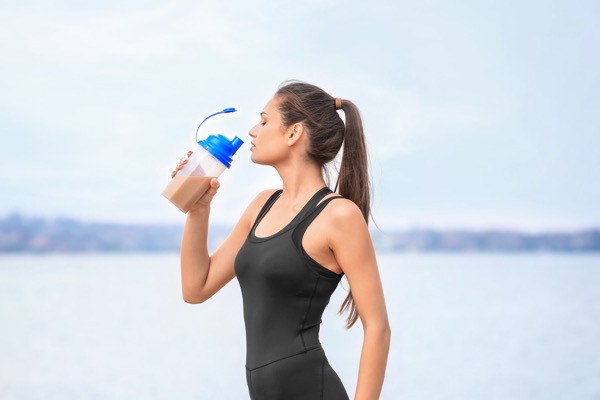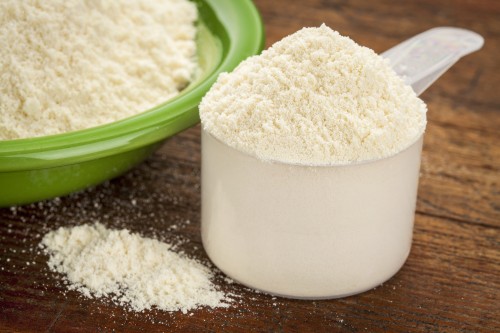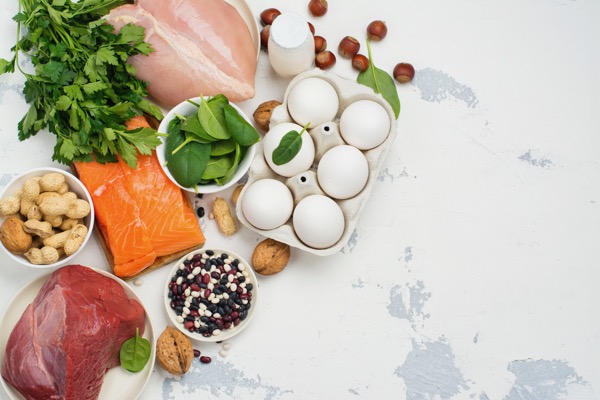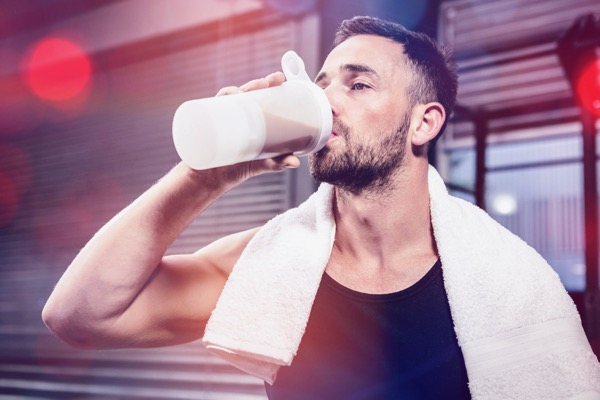Protein & Exercise – What You Need to Know
Whether you’re seasoned runner, gym goer or like to exercise regularly, to reap the benefits make sure you consume sufficient protein.
Understanding the Basics
Protein is an essential nutrient. It is crucial to the health of every cell in your body, involved in hormone production, immune health, bone health, recovery and repair. Proteins are used to make muscles, tendons, organs and skin as well as being used to make enzymes and neurotransmitters that affect how we think and feel.
If you are involved in regular exercise, particularly if you are an endurance athlete you may need more protein that you think. Endurance athletes tend to oxidise amino acids as an energy source over long distances so getting optimal amount is important for overall performance and maintaining muscle tissue. Adequate protein intake also supports muscle growth, recovery and healing making it essential for any one exercising regularly. If you are not getting enough you may be at a greater risk of injury. Protein is also crucial for a healthy immune system. After an intense training, your immune system is depressed for several hours. Consuming adequate protein particularly post exercise can help reduce the risk of infections particularly respiratory problems which can be common in endurance athletes.
But protein is not just about quantity. It’s also about quality. Animal protein (meat, fish, eggs, dairy) tends to provide all the essential amino acids in the right ratio for us to make full use of them. So if you regularly eat animal proteins you may be doing pretty well in terms of your daily intake. It can be more difficult if you are a vegan however as many plant based foods do not provide all the essential amino acids that your body needs. Have a look at my book GO LEAN VEGAN for more information on getting sufficient protein on a vegan diet.
That does not mean everyone should be taking protein supplements, but they can be useful for athletes, bodybuilders or anyone exercising regularly who is not getting the results they want from their workouts.

How Much is Enough?
The recommended daily amount (RDA) for the general population is 0.8g/kg/day but that is not enough for athletes according to latest sports research. The optimal intake for endurance athletes is considered to be around 1.2-1.6 gram per kilogram of body weight a day. A recent research study in 2015 on women endurance runners suggested 1.6 g/kg/day would be more appropriate for optimal health and performance. This translates to around 90g protein for a 9 stone runner or 110g protein for a 11 stone runner.
If you’re looking to support weight loss studies suggest that a protein intake of around 30% of your calorie needs for the day may be optimal. This is because a higher protein intake boosts metabolic rate as well as helping you feel fuller meaning overall you are likely to reduce your overall calorie intake.
If you’re serious about gaining muscle then you may need to check how much you are eating. While studies differ in recommendations. Generally speaking around 0.8-1g of protein per pound of body weight seems to be most effective. This is actually more than you may think – this is around 1.6- 2.2g of protein per kg which is much higher than the RDA.
In practical terms this means you are looking to consume 20-30g protein at each meal and include protein in a couple of snacks daily too.
It’s not just the athletes that may need more protein. Elderly people also benefit as it can help prevent sarcopenia (reduction in muscle mass) and osteoporosis. For example this study suggest the RDA for Elderly people should be 1.0 to 1.2 g/kg per day
In addition if you are recovering from an injury you may need more protein too

Exercise and Nutrient Timing
There are lots written about the best time to eat around exercise. It is often suggested that there is a tight anabolic window after exercise where you need to consume more protein to stimulate muscle protein synthesis and aid growth and recovery.
While it may be useful to consume some food after a workout, studies suggest that you don’t necessarily need to do this immediately after a workout. Exercise has the effect of increasing muscle protein synthesis for several hours after training.
It is more important to ensure that your overall daily protein intake and the nutrients you consume is appropriate for your activity levels. Consuming sufficient protein at each meal appears to be more effective at enhancing muscle growth and supporting recovery than concentrating your intake in one meal per day.
The main time you may need to prioritise a post workout snack is if you are exercising more than once a day or you are an elite or endurance athlete and need to replenish your body’s fuel more quickly or looking to gain that competitive advantage.
Your Pre workout meal or snack may be actually more important if you are looking to boost performance. Eating an easy to digest meal or snack at least 1 hour before a workout may improve performance particularly if you have not eaten for a while or you are working out first thing in the morning.
However if you are looking to shift fat and improve insulin sensitivity then training on an empty stomach may help you burn fat so it does depend on your goals.
The key focus should be on getting sufficient quality protein spread throughout your day based on your activity levels as mentioned above.
What to Eat: Best Sources
Lean meats and other animal products, like eggs and dairy, pack a lot of protein and contain all the essential amino acids (the building blocks of protein) the body needs. A 100g chicken breast for example contains 28g protein while two eggs contain around 15g.
Many plant proteins are low in one of the essential amino acids. For instance, grains tend to be short of lysine while pulses are low in methionine. The exceptions are foods like soy (e.g. tofu), spirulina and quinoa (an ancient grain) which do contain all the essential amino acids. However, this does not mean that vegans will be short on protein. Eating a variety of plant proteins through the day will help ensure you get all the essential amino acids your body needs. Read my GO LEAN VEGAN book for more information.

What Does 20g protein look like?
400g can baked beans
1 small lamb chop
70g beef fillet
80g can tuna
3 eggs
5 egg whites
150g pot cottage cheese
90g chicken breast
80g turkey
100g salmon fillet
100g cod fillet
5tbsp peanut butter
75g prawns
110g / 1 cup nuts
170g tofu
140g Quorn
200g fat free Greek yogurt
400g fromage frais
33g spirulina
130g ham
Protein Powders
Protein powders can be a convenient way to ensure sufficient protein intake, particularly post training. Most contain around 20-30g per serving of protein.
Whey powder is recognised by many sports nutritionists as the premier powder of choice for athletes. If you are prone to injuries or need some bone support whey protein has also been shown to help bone metabolism, both in building bone and preventing resorption of bone. Whey is particularly useful to help with recovery because of rapid transit into the small intestine & high levels of Branch-Chain Amino Acids (BCAA’s) (which is also useful for prevention of muscle breakdown during exercise) & Glutamine (important fuel for muscle synthesis). When choosing a product look at the added ingredients and how it is processed. Many prefer to choose powders which have been cold-processed as it is thought that heat treatments can degrade the protein as well as damaging immune supportive micronutrients. Read our blog on whey protein
I often use collagen powder and while this is not a complete protein it is very valuable for gut health as well as connective tissue and bone support. Another great option especially if you struggle with poor digestive health or runner’s trots is colostrum powder which has been widely studied into its benefits as a post workout recovery food particularly for its ability to heal leaky gut.
Hemp protein, Egg, Soya, Pea and Rice proteins are also readily available and can be useful options if you are unable to tolerate or wish to avoid milk proteins. Hemp protein contains all the essential amino acids plus essential omega 3 fats making it useful for lowering inflammation. Others like pea and rice tend to be low in certain amino acids. Brown rice protein powder contains the complete combination of amino acids but is a bit low in lysine for example in comparison to whey protein. Pea protein is easily digestible and contains particular amino acids relevant to runners including lysine, BCAA (to maintain muscle tissue during exercise), glutamine (muscle recovery) and arginine (muscle metabolism and energy). Ideally use a mixture of different protein powders or choose a blended protein powder to get maximum benefits.
Whatever your choice remember that protein powders are still a supplement which means you should use them in addition to including a variety of protein rich foods throughout the day in your diet.


